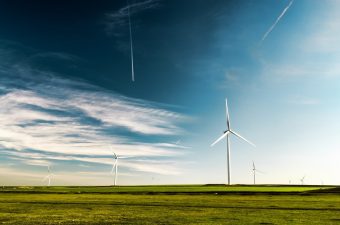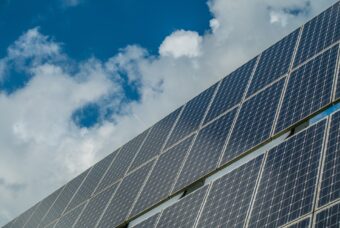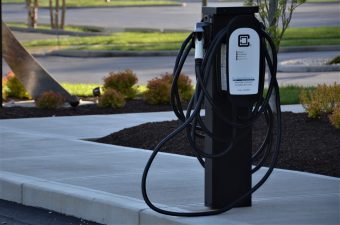
Sustainable business is a relatively new, very sensitive and changing topic. Different companies throughout the supply chain and in different fields have different views of what is sustainable for them and what is not. In Serbia, sustainable business is sometimes accepted as a fad, while other companies sincerely believe in it. In general, sustainability is an integral part of the company’s culture, guiding it in decision-making and long-term investments to create lasting value.
Business strategies are based on the basic principles of creating and sharing value with various stakeholders – consumers, customers, communities, employees and shareholders- which determines how the company will be run. Their commitments regarding business sustainability arise from the connection with various issues that are important to them, as well as strategic priorities.
The strategic goals of sustainability include mitigating negative impacts on the environment, promoting health and contributing to the development of the local community. Sustainable development meets the needs of the current population and does not jeopardize meeting the needs of future generations. Sustainability implies that we consume only a few resources and save them for future generations; that is, we do not exploit the resources that are quite expendable to the maximum.
According to a recent study on ESG (Environmental/Social/Governance) principles, which includes various domestic, foreign, smaller and larger companies in Serbia and the region, the surveyed companies think differently about investments in sustainable development and implementing ESG principles. Some companies need to be more mature to understand how much these principles will be valued in the future. Large, developed companies take it seriously and write ESG annual reports. In contrast, smaller ones think that if they put more modern light bulbs on their business premises, they will save a significant amount of energy, and that’s all they invest in sustainability.
IN FOCUS:
- PADEJ GETS A SOLAR POWER PLANT WITH INSTALLED POWER OF 3 MWP
- IMPLEMENTATION OF RESPONSIBLE BUSINESS IN SERBIA AND THE WORLD
- NEW PROJECTS THAT WILL RECEIVE WWF ADRIA GRANTS
A small share of RES in the total energy consumption

Changes are taking place worldwide, and different sustainable business concepts orient and focus on other sources. This is especially true for energy. We can either rely on what we thought was sustainable development before the coronavirus pandemic and the Russian-Ukrainian war, or we can redefine the goals of sustainable development and business because they will still be implemented more slowly due to the restructuring of the world.
The best examples of sustainable development are found in the energy sector. Still, unfortunately, the development of renewable energy sources (RES) and the share that RES have in total consumption in Serbia are inadequate and need to be improved. This is one of the development tasks in the coming period. There is still a dominant, traditional philosophy about coal-fired power plants, and we keep that resource at the planned rate.
The developed countries of the European Union have a more significant share of RES, but in general, I am not optimistic about the deadlines set even in those countries. Let’s take Germany, for example, where RES’s share in gross electricity consumption will reach 80 per cent by 2030. This requires changes in thinking and living, using energy and resources, and investing in sustainable development instead of boosting a consumer mentality.
Renewable energy sources have many advantages. However, we should remember that the global economy has achieved exceptional growth thanks to fossil fuels and that RES cannot replace them quickly. However, steady growth is only possible if the economy relies on limited resources.

The level of awareness among company owners, including those in real estate, in Serbia could be a lot higher. It all hinges on the company’s power. If the company’s financial strength is excellent, the investments in sustainable development are also more significant. Companies that understand that marketing is an investment, not an expense, look at sustainable business principles similarly and accordingly need an investment budget. On the other hand, smaller domestic companies do not invest enough in sustainable business. Some of them have launched engaging campaigns focusing on sustainable business. However, if comprehensive research was carried out, I am not sure what it would show; that is how much business owners understand and earnestly believe in sustainable development.
In the production segment, manufacturers will always try to create a production line that will save energy and thus cut production costs. From a long-term perspective, Serbia has a relatively low price of electricity, which is one of the reasons why we have attracted large-scale investments and appeal to investors in doing business with us. For large European manufacturers, the price of electricity, which in Serbia is the lowest in Europe, can bring significant savings. The low electricity price is a factor that investors definitely consider; on the other hand, it is a limiting factor for RES development. The energy sector requires long-term planning for making changes, and it takes a lot of time to accomplish results. Industry uses the energy that is most profitable for it. Suppose the electricity price is low in Serbia compared to the EU. In that case, it is unlikely that they will switch to using RES because industrialists are enormous consumers, and it is simply not worth it to them now. Sustainability in business depends on how much traditional business costs in total.
Dr Slobodan Aćimović
Read the story in the new issue of the Energy portal Magazine RESPONSIBLE BUSINESS



